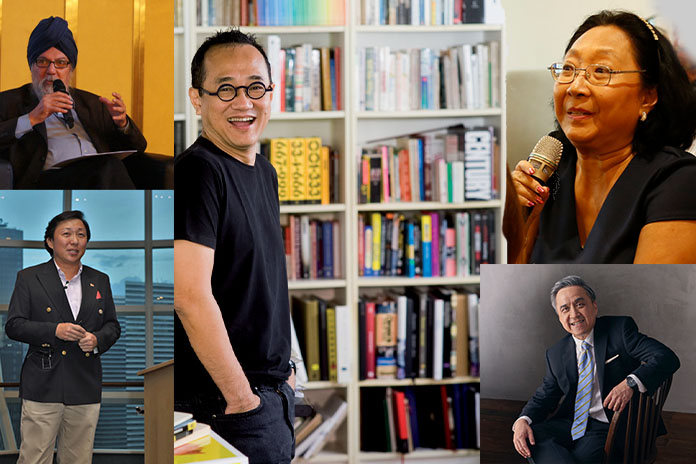
ARE our writers encouraged to dip into their well of creativity and produce local literature that can showcase our talent?
If we look at the number of local books in the Singapore collection at the National Library Board (NLB), you might think so.
The NLB has 290,000 books in the Singapore collection. In addition to these books, there are more than 340,000 reference books with Singapore content at the NLB libraries.
But it’s hard to get a sense of how these numbers compare with the total collection of books that the NLB has. We don’t know how many duplicate copies are in these numbers, and a figure for the NLB’s total number of books — physical and electronic — was not available.
“We are unable to provide the percentage of Singapore e-books in our collection, as we are not able to get an accurate number on the digital collection size from Overdrive in view that it does not have a category for Singapore books,” was its explanation.
NLB adds about 800 to 1,000 book titles for the Singapore collection annually. These are purchased from vendors, as well as copies gifted by donors and organisations.
The NLB has invested heavily in infrastructure. A new building and an excellent system for borrowing and returning physical and e-books made it a leading library in the region. But while the hardware is top drawer (except maybe for counting its inventory), how about its support of the software that will keep Singapore’s literary heart beating?
Could the NLB play a bigger role in encouraging local literature? Views are mixed across writers and publishers.
ALSO WATCH: Passion And Practical Tips For Authors
Edmund Wee, Publisher of Epigram Books is of the opinion that the library could buy more copies of locally published books.
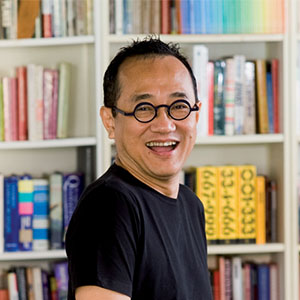
“For independent publishers to break even on a book, we have to sell on average, around 3,000 copies of each title,” he says.
Book sales in Singapore are generally weak, and Edmund points to countries like Norway, which has a similar population size to Singapore, where the library supports local publishers by buying in quantity.
“National libraries have a duty to support local writers and publishers.
“If the library could buy 1,000 copies of each title, that would certainly help. Currently they buy around 65 copies of each title,” he reveals.
The NLB has a network of 26 public libraries, according to its website.
Edmund is also asking the library to consider the possibility of a public lending right programme which would compensate authors for loss of sales as a result of their books being available in public libraries.
He hasn’t heard back from them on his suggestion.
AFTER THIS… What Do Local Authors Say?

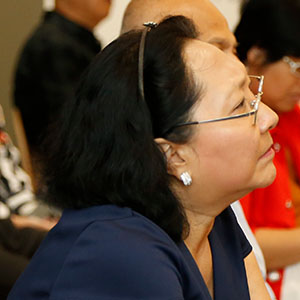
Local author Patricia Chew had to fight to get her Tony Tapir series of children’s books into the Singapore section.
“They put my books in the foreign section because my publisher is from Malaysia. But now the books are available at various libraries,” she says.
Patricia recommends that the library publicise new local books more.
“No point for the books to be there when people don’t know they are there!”
Educator, author and poet, Dr Kirpal Singh recalls the Library promoting poems on public transport in the late 1980s, a move, he feels, should have been continued.
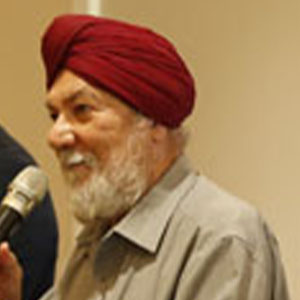
“I was on the committee that selected the poems in four languages, but it’s important for the momentum of such endeavours to be maintained.
“The big banks and businesses in Singapore should support these causes, only then will we see our own literature survive and thrive.
“In many countries, the library works with writers and publishers to bring out new works,” he adds.
ALSO READ: Kismet With A Fluffy Ending
Author Rick Koh Buck Song has more practical considerations when it comes to NLB’s impact on society.
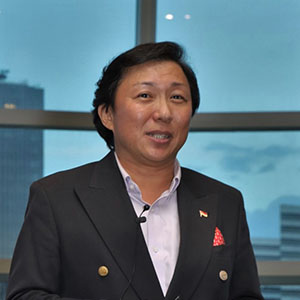
“During this pandemic, when there are still movement restrictions and some people are still hesitant to leave their homes, why not provide a home delivery service for books?” he asks.
Rick also feels that this would help create jobs, besides promoting literacy and self-improvement.
And if the logistics of organising physical events poses an issue, why not have more virtual programmes?
“With events now virtual, why are there so few of them? There’s no limit at all to the number of events that can be held, and no more cost restriction on having the best writers from anywhere in the world to speak.”
Rick does praise the NLB’s online exhibition, From The Stacks, and feels more such programmes should be created.
ALSO WATCH: THE POST-PANDEMIC DINING SCENE MAY LOOK VERY DIFFERENT
Author of the Teenage Textbook, Adrian Tan views the issue from another perspective.

“The NLB is doing an excellent job in promoting Singapore literature. The problem doesn’t lie with them. Once a book is produced, the NLB does its best.
“The problem lies in actually getting a novel written. And that’s something that is beyond the scope of NLB. We may have to go higher up.
“Writing a novel requires time and dedication. It takes years of discipline. It’s usually incompatible with a day job. Most novelists, if you ask them, will tell you that what they want is financial support. That is tricky, because we are not a society that believes in paying for art and culture.
“I am not even sure if the authorities care enough about funding Singaporeans to produce art. But that is precisely what they ought to be looking at.
“What binds a nation? What creates a sense of belonging?
“Is it big parades, or a national song every year? I think it is the art. Stories that capture the Singapore spirit, or art that evokes a memory of home — those are the emotional building blocks of a country.
“One book about Singapore may evoke more joy and laughter, and nostalgia or inspiration, than decades of campaigns and parades.”
If you have a topic that is of interest, or have someone who would make a good panellist with a thought-provoking perspective on a subject, please email editor@storm-asia.com with your details and a short summary.



















